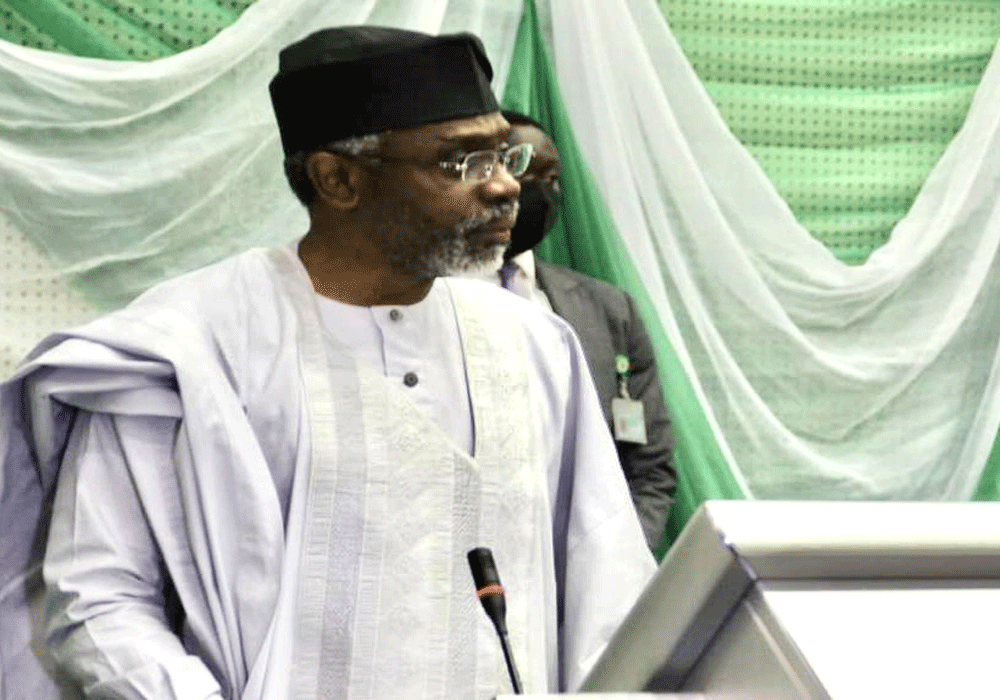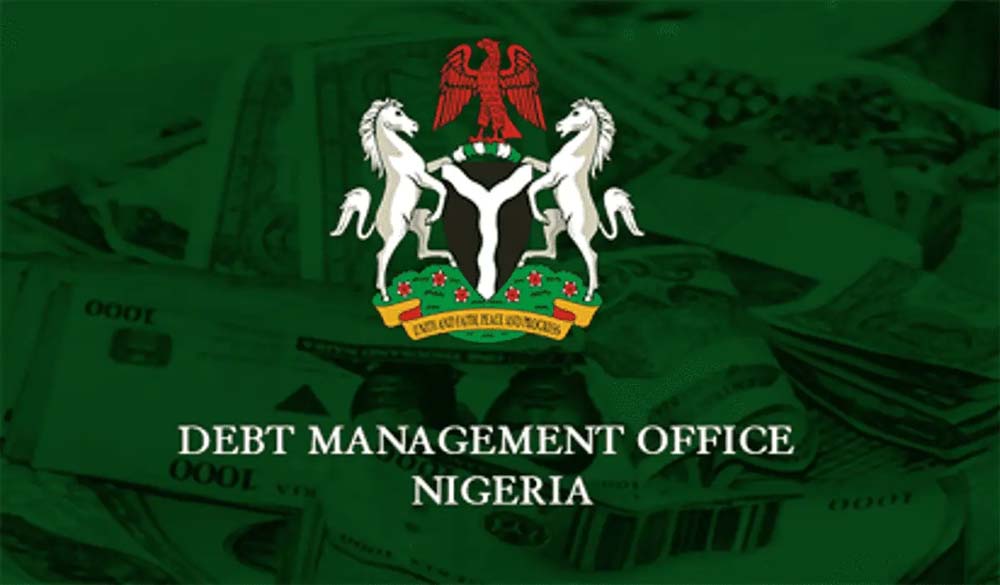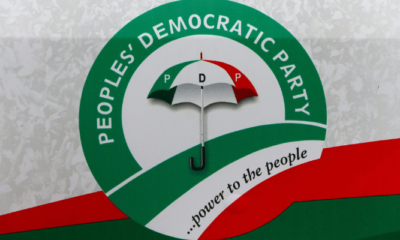Business
IMF Considers CBN Act 2007 Defective

With political heavyweights poised to test the resolve of the Executive arm and the judiciary over the Central Bank of Nigeria’s (CBN) new monetary policy, the International Monetary Fund (IMF) has expressed the view that the CBN Act 2007 is replete with loopholes.
The IMF in its latest report, titled ‘Nigeria: 2022 Article IV Consultation-Press Release; Staff Report; and Statement by the Executive Director for Nigeria’ called for the Act to be strengthened to safeguard the apex bank’s autonomy and guarantee governance.
Recall that the Supreme Court had technically consigned the autonomy of the CBN to the dustbin, with its ruling, which adjourned the February 10 cut-off date for the legal tender status of the redesigned N200, N500 and N100 banknotes, pending the determination of a suite before it.
Recall that Speaker, House of Representatives, Femi Gbajabiamila, also recently said that regardless of any supposed autonomy of the CBN, the apex bank was still bound by law.
He said, “Many have argued on the independence of CBN – the autonomy of CBN. That does not make CBN above the law. The constitution gives the House the power to issue an arrest warrant against anyone; we can summon anybody and that was exactly what the House was going to do until the CBN governor came. So, we are watching, and we are monitoring very closely.”
As the drama continued, the IMF pointed out the importance of safeguarding the autonomy of the apex bank to ensure price stability, which it described as the main objective of the bank.
The IMF called on the CBN to resume the publication of its annual financial statements, as well as sticking to international standards.
In part, the report read, “To strengthen the central bank’s autonomy and governance and to establish price stability as its primary objective, the 2007 CBN Act needs to be modernised.
“The CBN’s financial reporting practices should be bolstered through full adoption of International Financial Reporting Standards and resumption of publication of annual financial statements. More broadly, the CBN should take steps to implement the recommendations from the assessment (the 2021 Safeguards assessment) as progress has been limited thus far.”
The IMF further stressed the need to strengthen the CBN’s autonomy by reducing the presence of government officials on the apex board and committees, alongside safeguarding the independence and tenure of central bank officials.
“A safeguards assessment of the CBN was completed in April 2021 but progress on implementation of recommendations has been limited. The CBN’s internal and external audit mechanisms broadly adhere to international standards.
“However, the CBN Act needs to be modernised to enshrine price stability as the primary objective, strengthen the central bank’s autonomy including by reducing the presence of government officials at the board and the CBN’s committees, and by safeguarding the independence and tenure of central bank officials. Legal amendments should also provide for independent oversight over the CBN, including establishing a majority non-executive board and an audit committee that is independent of executive management.
“Financial autonomy should be safeguarded through clear statutory limits on credit to government and prohibition of quasi-fiscal operations and developmental lending activities, which need to be phased out. Financial reporting practices need to be bolstered through the full adoption of International Financial Reporting Standards and resumed publication of annual financial statements. Thus far, limited traction has been seen on implementation of the recommendation and staff continues to engage with the authorities on these issues,” the report noted.
Business
FG Reiterates Commitment To Utilise Gas For Economic Growth, Prosperity

. . . Tinubu Lauds NNPC Ltd, Partners Over Three Commissioned Gas Projects
In line with its renewed hope agenda, the Federal Government has reiterated determination to utilize Nigeria’s abundant gas resources towards revamping her industrial growth and kick-starting economic prosperity.
Biztellers reports that President Bola Ahmed Tinubu made the assertion while commissioning three critical gas infrastructure projects executed by the NNPC Limited and its partners in Ohaji-Egbema, in Imo State and Kwale, in Delta States, on Wednesday.
The three projects commissioned include the expansion of the AHL Gas Processing Plant, the ANOH Gas Processing Plant and the 23.3km ANOH to Obiafu-Obrikom-Oben (OB3) Custody Transfer Metering Station Gas Pipeline Projects.
He said, “It is pleasing that approximately, 500MMscf of gas in aggregate would be supplied to the domestic market from these two Gas Processing Plants, which represents over 25% incremental growth in gas supply.
“In practical terms, this translates into more gas to the Power Sector, Gas-Based Industries, and other critical segments of the economy.”
The President pointed out that from the onset, his administration was clear of its intention to leverage on the virtually unlimited capacity of gas to deepen domestic gas utilization, increase national power generation capacity, revitalize industries, and create multiple job opportunities for economic growth.
He said aside the Presidential Compressed Natural Gas (CNG) Initiative which is aimed at moving Nigerians away from petrol and diesel as vehicular combustion fuel, significant progress has also been recorded in incentivizing gas development through Presidential Executive Orders.
While congratulating the projects partners (NNPC Limited, Sterling Oil Exploration & Energy Production Company Limited (SEEPCO) and Seplat Energy for the successful implementation of the three projects, Tinubu particularly charged the NNPC Limited to, as the national energy company of choice, sustain its relentless efforts and record more successes in the energy sector for the benefit of all Nigerians.
President Tinubu described the commissioning as a highly significant milestone for Nigeria as it demonstrates his administration’s efforts to accelerate the development of critical gas infrastructure geared at enhancing the supply of energy to boost industrial growth and create employment opportunities.
He said the projects were fully in line with the Federal Government’s Decade of Gas initiative, and his administration’s quest to grow value from the Nation’s abundant gas assets while concurrently eliminating gas flaring and accelerating industrialization.
“I wish to assure the citizenry that these are just the beginning, as the federal government is stepping up its coordination of other landmark projects and initiatives that will ensure the earliest realization of gas fueled prosperity in our country.
“Consequently, I wish to assure investors in the energy space that this is an investment enabling government and we will not relent in facilitating the ease of doing business,” the President noted.
Earlier in his address, the Minister of State for Petroleum Resources (Gas) Rt. Hon. Ekperikpe Ekpo highlighted the efforts of his ministry to continue to champion the utilisation of gas as a transition fuel as Nigeria moves towards achieving clean energy efficiency and security by 2060.
Ekpo commended the President for his leadership and support towards the success of the three projects.
In his remarks, the GCEO NNPC, Mele Kyari described the commissioning as a demonstration of Mr. President’s commitment and support to grow the domestic utilization of natural gas for power generation, as feedstock for gas-based industries and overall rapid industrialization of Nigeria on the back of the enormous gas resources in the country.
Kyari assured that as part of its mandate, NNPC Ltd remains committed to maintaining energy security by executing more strategic gas projects for the benefit of Nigeria.
Business
FG Lists N4.214bn April Savings Bonds On NGX

The Nigerian Government has listed her April 2024 Savings Bonds worth N4.214 billion on the Nigerian Exchange Limited (NGX) platform.
This was disclosed in the market bulletin signed by the Head, Issuers Regulation Department of NGX, Godstime Iwenekhai.
According to the bulletin, “Trading License Holders are hereby notified that the April 2024 Issue of the Federal Government of Nigeria (FGN) Savings Bonds was listed on Nigerian Exchange Limited (NGX) on May 13, 2024.”
Details of the Bonds include FGS April 2026, 1.228 million units valued at N1.228 billion at a coupon rate of 17.046%, while FGS April 2027, 2.986 million units amounted to N2.986 billion at a coupon rate of 18.046%.
The bonds are backed by the full faith and credit of the FGN and charged upon the general assets of Nigeria, according to the debt office.
FGN Savings Bond is issued monthly in tenors of two and three years with quarterly payment of coupons (interest) at a rate predetermined and published by the DMO every month.
The retail savings bond product was introduced by the DMO on behalf of the FGN in 2017 to democratise its activities in the bond market by making it easily accessible to Nigerians to ensure continuous development of the domestic market and bridge infrastructure deficit which has been a constraint to economic growth.
Business
JUST IN: Nigeria’s Inflation Soars To 33.69%
Nigeria’s inflation rate surged to 33.69% in April 2024, up from 33.20% in March, according to the latest data from the National Bureau of Statistics (NBS).
The Consumer Price Index (CPI) report, released Wednesday, shows a 0.49 percentage point rise within a month.
Year-on-year, the inflation rate has surged by 11.47 percentage points, compared to 22.22% in April 2023, highlighting the ongoing economic challenges and rising costs for consumers.
The report reads “In April 2024, the headline inflation rate increased to 33.69% relative to the March 2024 head line inflation rate which was 33.20%.
“On a year-on-year basis, the headline inflation rate was 11.47% points higher compared to the rate recorded in April 2023, which was 22.22%.
This shows that the headline inflation rate (year-on-year basis) increased in the month of April 2024 when compared to the same month in the preceding year (i.e., April 2023).
“Furthermore, on a month-on-month basis, the headline inflation rate in April 2024 was 2.29%, which was 0.73% lower than the rate recorded in March 2024 (3.02%).
“This means that in the month of April 2024, the rate of increase in the average price level is less than the rate of in crease in the average price level in March 2024.”
Prices of food and basic commodities have surged dramatically in recent weeks, as Nigerians grapple with a soaring cost of living and one of the nation’s most severe economic crises.
The crisis has been intensified by the government’s removal of petrol subsidies and the unification of forex windows.
The naira, which had appreciated against the dollar in April, has since plummeted from about N1,100/$1 to roughly N1,500/$1.
Following the latest inflation report from the National Bureau of Statistics (NBS), the Monetary Policy Committee (MPC) of the Central Bank of Nigeria (CBN) is anticipated to review the country’s interest rate, currently set at 24.75%.

















